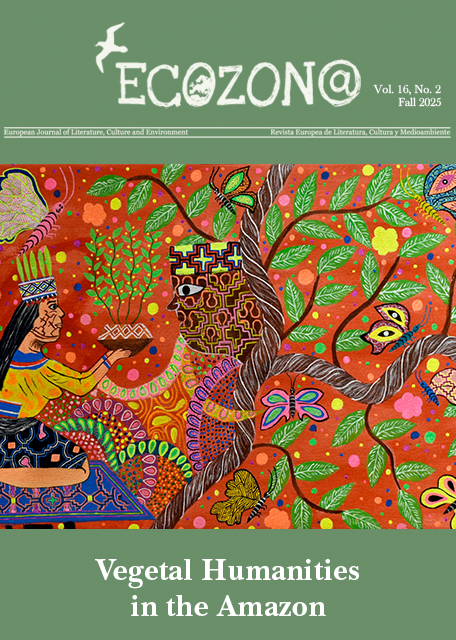New Ecocriticisms: Narrative, Affective, Empirical and Mindful
DOI:
https://doi.org/10.37536/ECOZONA.2020.11.2.3520Schlagworte:
eco-affects, storyworld, narrative, empiricism, mindfulness, psychic numbingAbstract
What seem like “new” developments in Ecocriticism have actually been nascent, articulated in conversations and blogs, soon emerging in presentations and print over the past five or more years. Responding to climate change numbing, ecocritics have explored the potential “arithmetic of compassion” (Slovic & Slovic 2015) and the “caring exhaustion” that arises when the numbers of those suffering—humans, animals, ecosystems—becomes too high to encompass. Human responses to the increasingly frightening scenarios of climate change futures have been termed “eco-anxiety” and “eco-grief” (Hutner 2015; Ray 2019). New developments in ecocriticism arise through the nexus of econarratology, affective ecocriticism, empirical ecocriticism, and mindful /Zen ecocriticism. I discuss this continuing trajectory in ecocriticism, developing from econarrative through ecoaffect (approaches that describe readers’ responses to climate change narratives) and on to empirical and mindful / Zen ecocriticisms (approaches that seek to offer strategies for responding to climate change narratives through affect, activism, and contemplative approaches, and for evaluating the efficacy of those strategies).
Downloads
Downloads
Veröffentlicht
Ausgabe
Rubrik
Lizenz
Authors who publish with this journal agree to the following terms:
a) Authors retain copyright and grant the journal right of first publication with the work simultaneously licensed under a Creative Commons Attribution License that allows others to share the work with an acknowledgement of the work's authorship and initial publication in this journal (CC BY-NC for articles and CC BY-NC-ND for creative work, unless author requests otherwise.
b) Authors are able to enter into separate, additional contractual arrangements for the non-exclusive distribution of the journal's published version of the work (e.g., post it to an institutional repository or publish it in a book), with an acknowledgement of its initial publication in this journal.
c) Authors are permitted and encouraged to post their work online (e.g., in institutional repositories or on their website) prior to and during the submission process, as it can lead to productive exchanges, as well as earlier and greater citation of published work (See The Effect of Open Access).










